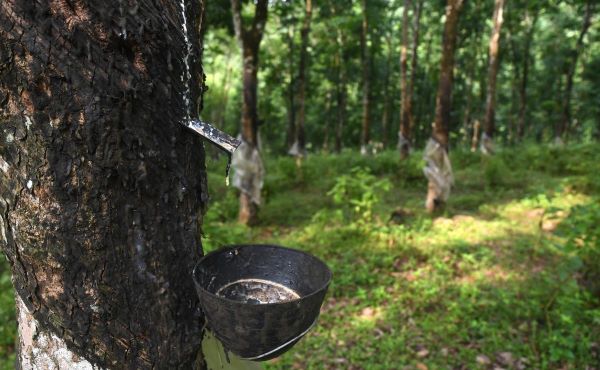
Not with standing a suspension of reciprocal tariffs by the U.S. government till June 9, the ripple effect of the move has already raised concerns of sapping the renewed momentum around its vast network of rubber plantations.
The domestic rubber prices have already taken a hit, dropping below the Rs. 200 mark for RSS-4 grade rubber. The downturn has growers worried, fearing a further slide that could render the crop unviable.
"We expect prices to fall as low as Rs. 180 and stabilize there for some time. Unfortunately, this rate doesn't even cover the basic cost of production", says Babu Joseph, general secretary of the National Confederation of Rubber Producers' Societies (NCRPS), an umbrella body for Kerala's small scale rubber farmers.
A price stabilization at Rs. 180, he warns, would likely discourage a large segment of growers from investing in critical plantation maintenance and potentially trigger a long-term dip in production. Officials from the Rubber Board too echo the concern, predicting a price fall linked to market uncertainties and a perceived slowdown in imports. They attribute the slump to a freeze in tyre manufacturers' purchases, driven by unpredictability in the global trade environment. Although natural rubber is exempt from the reciprocal duties, finished rubber products are not. "Indian rubber products are currently exporting around 20% to 25% to the U.S. Once it comes into effect, these tariffs will undoubtedly affect our long-term competitiveness", an official noted.
Compounding the challenge, the European Union has introduced deadlines for compliance with its Deforestation Regulation (EUDR), set to take full effect by 2026. The US and EU together account for about 55 percent of India's rubber goods exports creating a twin blow to the sector.
The domestic rubber market is projected to grow at a compound annual growth rate (CAGR) of 3-5%, which many believe will cushion the impact of external shocks. "Rubber is a strategic raw material and globally in short supply. Eventually, the market will have to realign with fundamental demand-supply dynamics," an official observed. Still, anxiety runs high among stakeholders. According to Shashi Singh, president of the All India Rubber Industries Association, said U.S. buyers have already advised Indian manufacturers to temporarily halt production. "They are focusing on clearing existing inventories before placing new orders. But by then, the pricing gap could further erode our competitiveness in this critical market", he cautioned.